Archana Patel
InBiodiv-O: An Ontology for Indian Biodiversity Knowledge Management
Aug 20, 2021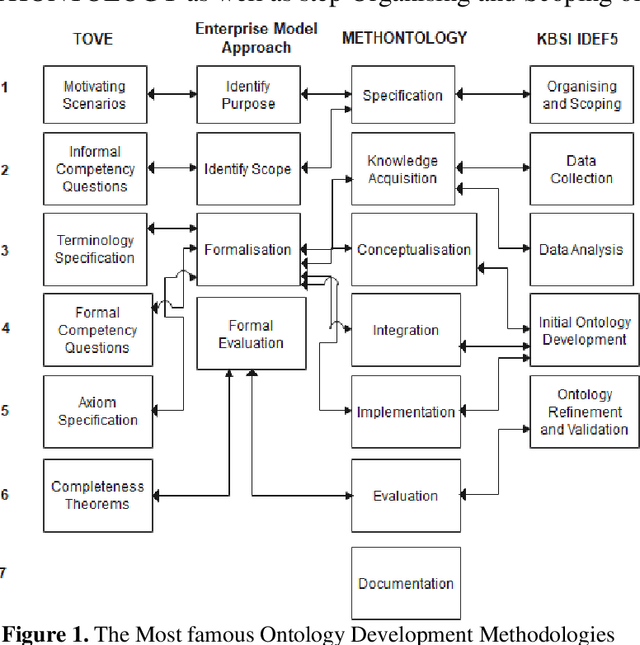
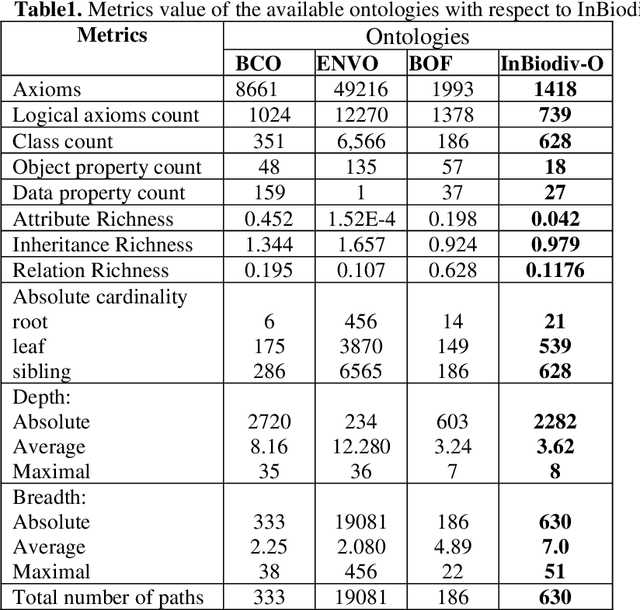
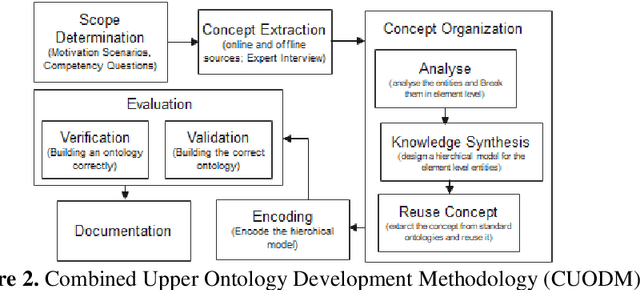
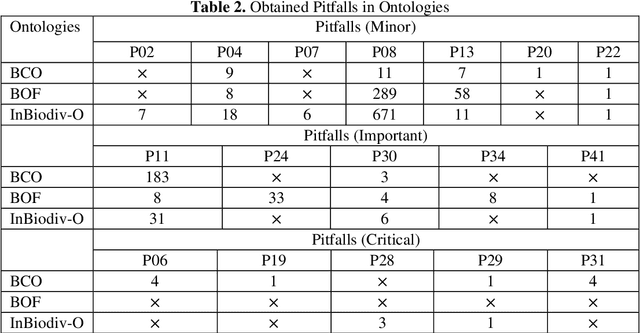
Abstract:To present the biodiversity information, a semantic model is required that connects all kinds of data about living creatures and their habitats. The model must be able to encode human knowledge for machines to be understood. Ontology offers the richest machine-interpretable (rather than just machine-processable) and explicit semantics that are being extensively used in the biodiversity domain. Various ontologies are developed for the biodiversity domain however a review of the current landscape shows that these ontologies are not capable to define the Indian biodiversity information though India is one of the megadiverse countries. To semantically analyze the Indian biodiversity information, it is crucial to build an ontology that describes all the essential terms of this domain from the unstructured format of the data available on the web. Since, the curation of the ontologies heavily depends on the domain where these are implemented hence there is no ideal methodology is defined yet to be ready for universal use. The aim of this article is to develop an ontology that semantically encodes all the terms of Indian biodiversity information in all its dimensions based on the proposed methodology. The comprehensive evaluation of the proposed ontology depicts that ontology is well built in the specified domain.
Development of the InBan_CIDO Ontology by Reusing the Concepts along with Detecting Overlapping Information
Aug 15, 2021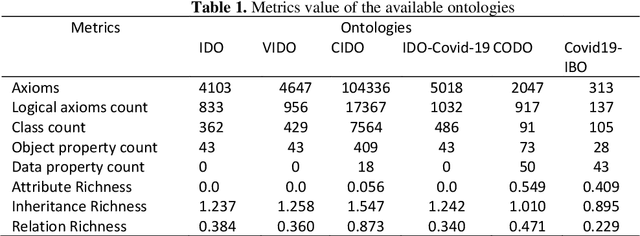
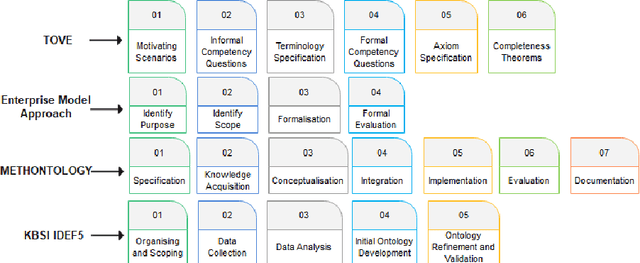
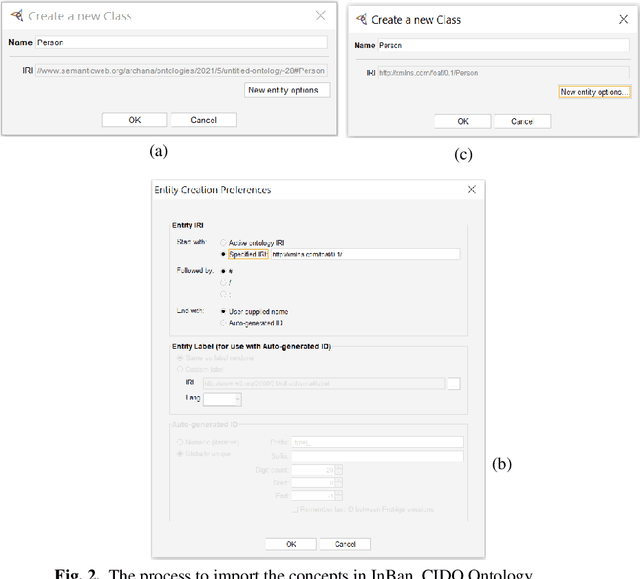
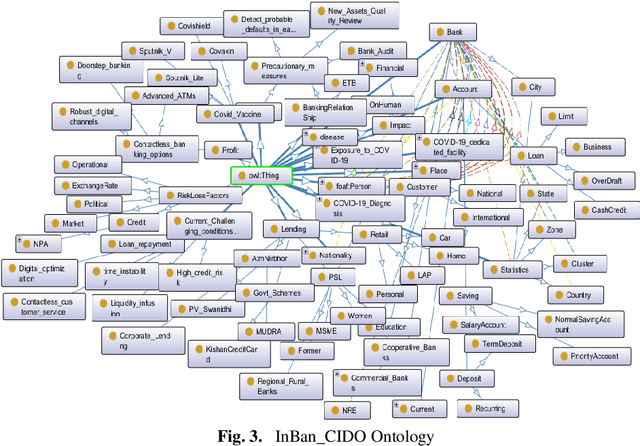
Abstract:The covid19 pandemic is a global emergency that badly impacted the economies of various countries. Covid19 hit India when the growth rate of the country was at the lowest in the last 10 years. To semantically analyze the impact of this pandemic on the economy, it is curial to have an ontology. CIDO ontology is a well standardized ontology that is specially designed to assess the impact of coronavirus disease and utilize its results for future decision forecasting for the government, industry experts, and professionals in the field of various domains like research, medical advancement, technical innovative adoptions, and so on. However, this ontology does not analyze the impact of the Covid19 pandemic on the Indian banking sector. On the other side, Covid19IBO ontology has been developed to analyze the impact of the Covid19 pandemic on the Indian banking sector but this ontology does not reflect complete information of Covid19 data. Resultantly, users cannot get all the relevant information about Covid19 and its impact on the Indian economy. This article aims to extend the CIDO ontology to show the impact of Covid19 on the Indian economy sector by reusing the concepts from other data sources. We also provide a simplified schema matching approach that detects the overlapping information among the ontologies. The experimental analysis proves that the proposed approach has reasonable results.
Semantic Contextual Reasoning to Provide Human Behavior
Mar 19, 2021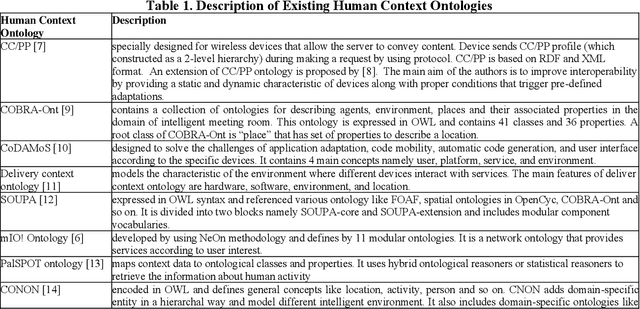

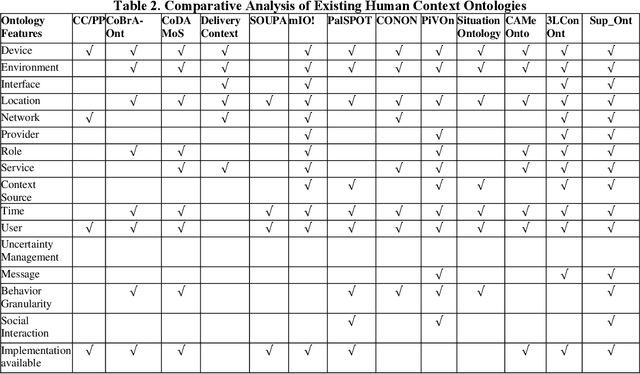
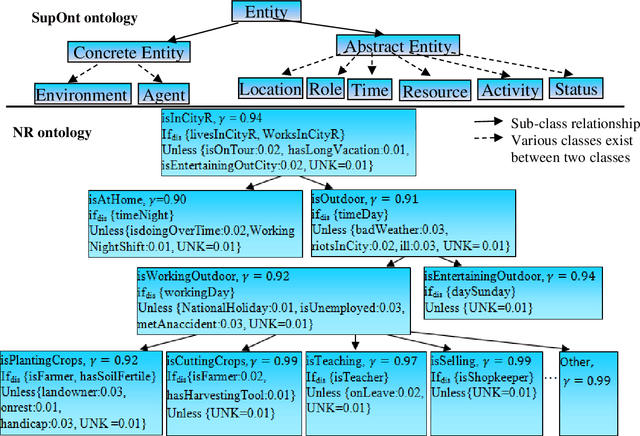
Abstract:In recent years, the world has witnessed various primitives pertaining to the complexity of human behavior. Identifying an event in the presence of insufficient, incomplete, or tentative premises along with the constraints on resources such as time, data and memory is a vital aspect of an intelligent system. Data explosion presents one of the most challenging research issues for intelligent systems; to optimally represent and store this heterogeneous and voluminous data semantically to provide human behavior. There is a requirement of intelligent but personalized human behavior subject to constraints on resources and priority of the user. Knowledge, when represented in the form of an ontology, procures an intelligent response to a query posed by users; but it does not offer content in accordance with the user context. To this aim, we propose a model to quantify the user context and provide semantic contextual reasoning. A diagnostic belief algorithm (DBA) is also presented that identifies a given event and also computes the confidence of the decision as a function of available resources, premises, exceptions, and desired specificity. We conduct an empirical study in the domain of day-to-day routine queries and the experimental results show that the answer to queries and also its confidence varies with user context.
 Add to Chrome
Add to Chrome Add to Firefox
Add to Firefox Add to Edge
Add to Edge